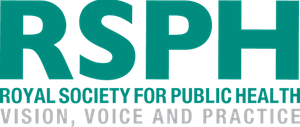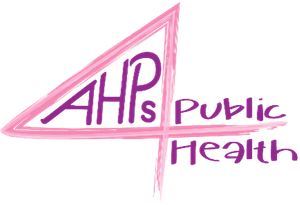

Developing and diversifying routes into Allied Health Professions (AHP) in East
London
Description
University of East London (UEL) have been working with NHS organisations, Social Services and cross-system partners to develop (1) AHP apprenticeships, particularly from local communities in East London, and (2) promote the role of AHPs in contributing to population health and tackling health inequalities. This aligns with workforce development targets and the mission of the institution as an anchor in the local community. This also celebrates UEL’s diverse community, reinforcing cultural awareness and social cohesion by encouraging engagement with community-based opportunities.
Context
Health Education England (HEE) forecast a three-year demand of 200 Physiotherapists, 90 podiatrists and 220 Occupational therapist apprenticeships alongside students training via traditional pathways in North East London (RSPH, undated). Demand for AHP workforce is acute and providers have a key role to play in increasing the output of graduates. The School of Health Sport and Bioscience at UEL as well as local healthcare providers have been closely collaborating over the past two years to develop new and increased points of entry into undergraduate apprenticeship programmes in Podiatry, Physiotherapy and Occupational Therapy. The closest borough and catchment area of Newham is considered the most ethnically diverse borough in England and Wales and the development of apprenticeships, not only offers managers a means of enhancing the future workforce pipeline but also can expand the educational opportunities in the local area by supporting communities, a key pillar of population health. The UK 2011 Census demonstrated that Newham has the youngest overall population and the poverty rate is the second-highest in London. The borough also has the highest percentage of local employees in low-paid work. This project will work to understand the breadth of impact that AHPs can have improving health inequalities. As these courses mature and become established, opportunities to build into the curriculum population health strategies, knowledge and skills can improve the ranks of the wider public health workforce.
Method
The development of a new learning environment for East London residents interested in pursuing a career in Podiatry, Physiotherapy and Occupational Therapy was developed in three parts:
- 1 – Development of a learner experience centred on the apprentice
- 2 – Stakeholder management and promotional work to raise the visibility of these career opportunities
- 3 – Contribute to the strengthening of systems thinkingWe ran a pilot project looking at the impact of providing the health teams recommendations in audio and video formats to the people we work with.
The first element built upon a long-standing background in providing education for AHPs. For example, UEL has been the only provider of Podiatry training in London since 2003. The foundation for these new courses has been built on strong clinical links with NHS trusts across London and the East of England. This means that UEL students can experience modern evidence-based practice across a wide range of clinical settings that have been designed to ensure that apprentices will engage in innovative teaching methods that provide tailored support for each learner.
The second part of this project required close working between the University and with local partners to increase capacity across the system. Key to expanding access opportunities to AHP roles is the support provided by academics and practitioners, but also by a dedicated Apprenticeship and Employer Engagement team that supported partners with compliance, advising on levy funding and employer inductions. The teams focussed on building relationships and trust, providing residents with narratives to reframe their expectations for employment, to form connections and create sustainable networks that build support. These efforts to facilitate access to skills and education and thereby maximise the capabilities of local residents we hope will also contribute to strengthening place-based approaches to population health and lead to a reduction in health inequalities.
The final part of this project was aided by outreach work and leadership of The King’s Fund to support the Pan-London Workforce Development Conversation. This enabled the sharing of insights about learning from our work to develop new roles including Allied Health Professionals by Apprenticeships in order to inform a healthier approach to workforce development for population health across London.
Outcomes
The outreach work and stakeholder liaison has been very successful in the way it has increased the awareness of AHP apprenticeships routes, leading to an increase in the number of Podiatrists and Physiotherapists in training and promises to do so with Occupational Therapy as this course matures. This will in turn increase the number of trained workers joining these professions upon successful graduation. The current cohort is 52.6% female and 47.4% male and 52.6% Ethnic Minority, therefore showing significantly higher percentages of Ethnic Minorities than the UK population average of 13.9% and of the 12.2% in AHPs.
The success of the course has also led to an increase in partners opting to select the University of East London as their provider of choice. Within the first year, employers have increased from 7 to 17 and an expected 200% increase in cohort size from September 2020 to May 2021 (n=16 to 32). Higher Education Institutions (HEIs) have a valuable contribution to promote population health and address health inequalities, when it comes to shaping the future workforce pipeline. The success of this programme has allowed us the opportunity to contribute to the Workforce Development Session in London Feedback and thereby make a contribution to the development of strategy in this area, led by Public Health England (PHE).
In the first year of operation, the user feedback has been extremely positive and has provided the following highlights:
From our December 2020 survey: “well organised, excellent communication” – feedback from South London and Maudsley NHS Foundation Trust (SLaM)
From our Spring 2021 survey; “staff are feeling competent and comfortable with their job and what they learn and I think this is amazing.” – Healy Medical Centre
“Working relationship with UEL is excellent, issues are timely resolved, and they regularly update the Trust.” – SLaM
Key learning points
Apprenticeships provide local residents working in the NHS the opportunity to learn as they earn and engage in training that would otherwise be unfeasible via traditional routes. This in turn contributes to a local workforce that support UEL students whilst on placement. This presents fertile conditions to pursue population health goals and integrating strategies or interventions at various levels across the whole system by embedding a common ethos and commitment to a set of values and shared goals. This is also an area for ongoing and continuous innovation with an aim to expand the population health components of undergraduate education.
A learning environment during conditions of national lockdown has provided an opportunity to explore the role of remote learning, including innovation in virtual and simulated placement opportunities. This is an area for further exploration but is currently backed by investment and the development of clinical education facilities at UEL. This will embed further training opportunities for local workers and residents.
It is also important for organisations like UEL, who provide opportunities to develop the workforce, to join whole systems conversations like the pan-London Workforce Development event. Educational providers have the opportunity to embed within their curricula the principles of population health and be strategic drivers and advocates for change.
